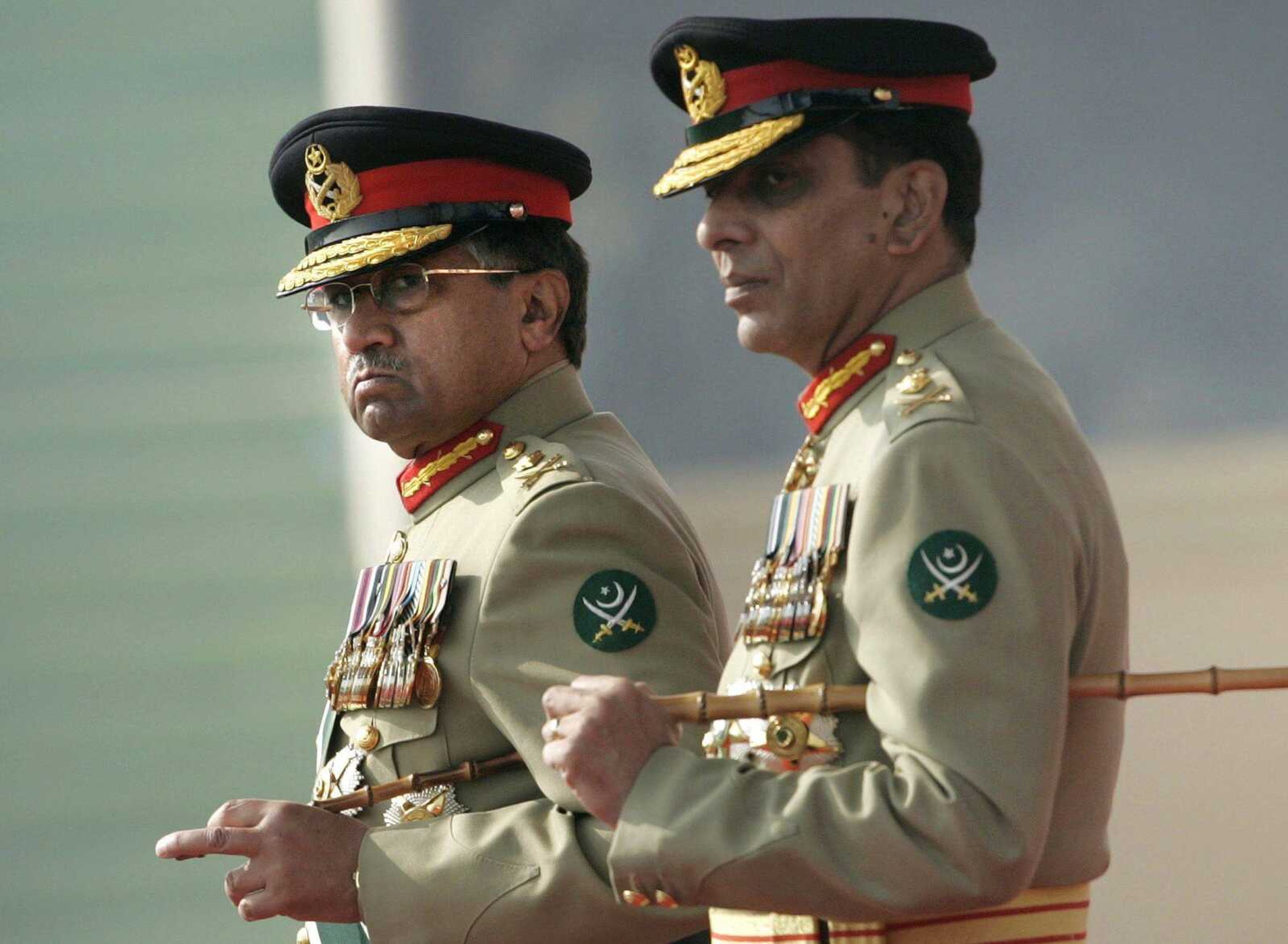Pakistan's Musharraf relinquishes post as head of army
RAWALPINDI, Pakistan -- A tearful Pervez Musharraf ended a four-decade military career Wednesday, giving up his army commander's ceremonial baton on the eve of taking an oath as the purely civilian president of Pakistan. The United States, keen to promote democracy while keeping Pakistan focused on fighting Islamic extremism, praised Musharraf's relaxation of his grip on power as a "good step" forward...
RAWALPINDI, Pakistan -- A tearful Pervez Musharraf ended a four-decade military career Wednesday, giving up his army commander's ceremonial baton on the eve of taking an oath as the purely civilian president of Pakistan.
The United States, keen to promote democracy while keeping Pakistan focused on fighting Islamic extremism, praised Musharraf's relaxation of his grip on power as a "good step" forward.
But it gave him no slack on the other key demand that he end a state of emergency that has enraged political rivals, strained his close ties with the West and cast doubt on the ability of opposition parties to campaign for parliamentary elections in January.
"We welcome Musharraf's decision to shed the uniform," said former prime minister Benazir Bhutto, leader of one of the two main opposition parties. "Now the Pakistani army has got a full-fledged chief and they can better perform their duties."
But she said her party would "not take any decision in haste" on whether it could accept Musharraf as head of state.
Nawaz Sharif, another former prime minister and opposition leader, again rejected Musharraf's presidency, saying his presidential oath today would have "no legitimacy."
Musharraf's belated retirement as chief of the military denies him the authority that has sustained him for the eight years since he seized power in a coup. He will likely retain great respect among the generals, but he will have to sharpen his political skills to stay in control.
He relinquished command Wednesday at army headquarters in Rawalpindi, a garrison city near the capital, Islamabad. He handed over his baton to his hand-picked successor, Gen. Ashfaq Kayani, a career officer who analysts expect to show his independence from the president.
"This army is my life. This army is my passion," Musharraf said, grimacing as an honor guard stood to attention in a field hockey stadium before hundreds of dignitaries, mostly military officers and their wives.
"From tomorrow, that relationship will always remain, but I will not be in uniform," Musharraf added, sniffing and blinking back tears before taking his place alongside the taller, more relaxed Kayani.
Musharraf was making a long promised step as part of what he hoped would calm anger over emergency rule and smooth Pakistan's transition toward democracy.
However, he secured a new five-year term as president only after using his authority over the army to decree a state of emergency Nov. 3, sweep away judges who might have stood in his way and silence most of his critics with arrests and a gag on the media.
In protest, some opposition parties are threatening to boycott the Jan. 8 parliamentary elections -- a move that could wreck the hopes of Musharraf's Western supporters for a stable, moderate government able to keep the pressure on militants aligned with al-Qaida and the Taliban.
President Bush said he appreciated that Musharraf kept his word by relinquishing his military post, calling it "strong first step" toward enhancing democracy in Pakistan.
"It is something that a lot of people doubted would ever happen," Bush said in an interview with CNN's "The Situation Room."
But Bush added that "in order to get Pakistan back on the road to democracy, he's got to suspend the emergency law before elections."
Connect with the Southeast Missourian Newsroom:
For corrections to this story or other insights for the editor, click here. To submit a letter to the editor, click here. To learn about the Southeast Missourian’s AI Policy, click here.










